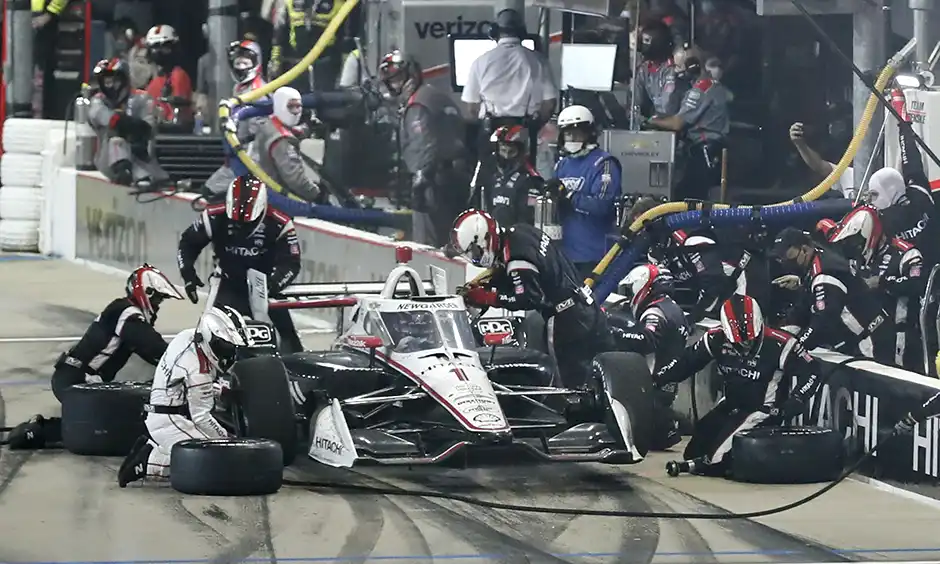Maja Czarzasty-Zybert explores motorsport as a mental health laboratory and examines how to support teams in the extreme conditions of racing.

“Machines don’t win races. People do. And their strength doesn’t come only from technical knowledge or reflexes – but from psychological endurance.”
Many of us view motorsport through the lens of dazzling cars, spectacular maneuvers, and champagne-soaked podiums. But beneath the surface lies a world that demands uncompromising resilience – both physical and mental. It’s a world where team members operate on the edge of human capability, often far from home, living on the clock, with one eye on telemetry and the other on time zones.
For years, motorsport glorified toughness and relentless performance. But today, we’re hearing more and more about psychology, burnout, and the importance of mental recovery. Motorsport is becoming… a laboratory for mental health. Perhaps even a blueprint for redefining workplace culture – not just in racing, but far beyond it.
I’ve observed motorsport with fascination – not only as a technological marvel but as a deeply human drama. But it wasn’t until I spoke with the people behind the scenes – engineers, female analysts, logistics specialists, silent heroes – that I realized just how much pressure they endure each race weekend. And how rarely they’re asked how they’re really doing.
I believe that the future of motorsport – like any high-pressure industry – doesn’t just depend on technology, but on how well we take care of each other. Of the ones doing the impossible every day, who sometimes stay silent because it takes courage to admit: “I’m tired.”
Behind the Pit Wall – life in turbo mode
Picture a mechanic from the World Endurance Championship (WEC). It’s 3:00 AM during the 24 Hours of Le Mans. Screens flash, engines roar, and every decision carries enormous weight. One tiny mistake during a pit stop – and the team’s effort, safety, and reputation can be lost in seconds.
This is no exception. Formula 1 mechanics often wrap up at 2:00 AM, only to return by 7:00. Race engineers analyze data through the night. Drivers, though in the spotlight, live under relentless pressure – from media, sponsors, rankings, and expectations.
And let’s not forget the less visible roles: logistics crews, PR teams, strategists. People who spend up to 250 days a year in hotel rooms, across time zones, rarely finding a moment to breathe. In motorsport, stress isn’t an occasional visitor – it’s the native environment.
Mental health beyond the cockpit

A decade ago, sports psychology was almost exclusively associated with drivers. Today, top teams – from McLaren to Porsche – employ mental coaches not just for drivers but for entire operational and technical crews. The paddock now talks openly about “wellbeing strategies,” burnout prevention, and even emotional intelligence.
These teams are beginning to understand that an individual under constant pressure – with no space for recovery – stops being innovative. And motorsport is nothing if not about innovation. Decisions are made in milliseconds, and mistakes cost millions. Emotional resilience is no longer a bonus – it’s a strategic advantage.
Burnout – the silent saboteur of the paddock
Burnout doesn’t strike overnight. In motorsport, it doesn’t look like boredom – it looks like micro-aggressions, loss of focus, and the fading spark of passion. People who once lit up the garage with fresh ideas begin to withdraw. Mistakes happen. Creativity plummets.
Teams like Aston Martin Racing and Toyota Gazoo have started experimenting with rotational models, allowing crew members time off to recharge. Others are creating quiet zones in the paddock, hiring wellbeing officers, and offering access to therapy. Breathing sessions, yoga, and mindfulness practices are slowly becoming strategic safeguards, not indulgences.
A new definition of performance – emotional resilience
In motorsport, performance is no longer measured by hours worked. Today, teams understand that mental resilience is competitive edge. An engineer who sleeps three hours won’t develop cutting-edge solutions. A mechanic battling depression won’t execute a flawless pit stop. A driver without emotional balance can’t win by a millisecond.
Smart teams are investing in mental safety systems – learning how to respond to stress, manage emotions, and build psychologically safe environments. And it works. You see it in smarter decisions, braver innovation, fewer mistakes – and deeper trust.
Motorsport as a workplace innovation model
Motorsport is a microcosm of the workplace of the future – only faster, more intense, and more public. The pressure, the speed, the interdisciplinary collaboration. Doesn’t that sound familiar to tech companies, emergency services, or high-stakes corporate teams?
Race teams can be leaders of a new workplace culture, proving that it’s possible to be both high-performing and human-centered. That mental wellbeing is not a cost – it’s an investment in precision, creativity, and long-term success.
Mental Pit Stop – a solution in motion
In response to these real and growing needs, I propose a simple but impactful solution:
“Mental Pit Stop” – 15–30 minute regeneration sessions for technical, logistics, and operations team members, built into race weekends:
- dedicated quiet spaces in the paddock;
- breathing and mindfulness sessions;
- access to a sports psychologist;
- quick self-check tools and emotional suport.
Just like a car needs a pit stop to change tires, a person needs a mental reset to avoid “engine overheating.” This model could be easily implemented in F1, WEC, Formula E – and eventually, across other high-stress sectors.
Because mental health is not a luxury. It’s a prerequisite for sustainable success.
At the finish line – there’s always a human
Motorsport will never stop being extreme. But it can be smarter. More conscious. More humane. In a world where every millimeter and millisecond matter – a healthy, emotionally strong, and united team becomes the ultimate competitive asset.
Because even in the most technologically advanced sport on Earth, no algorithm wins championships.
People do.


